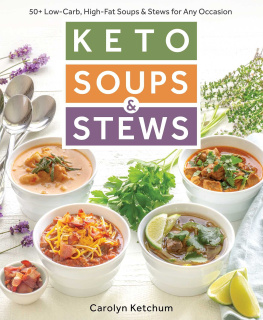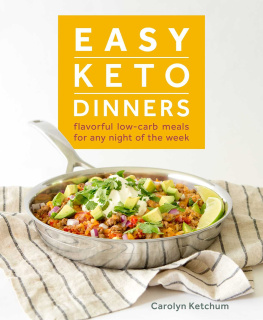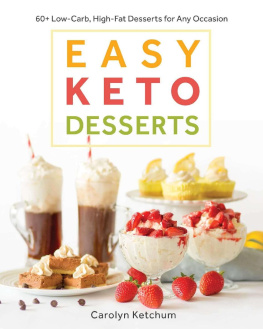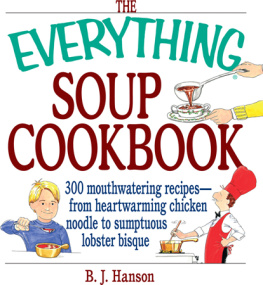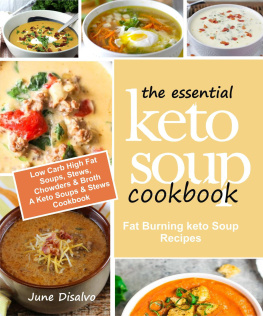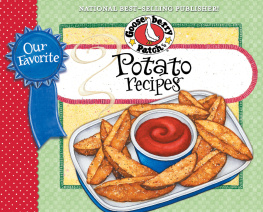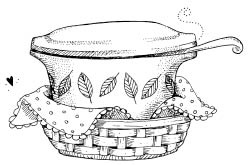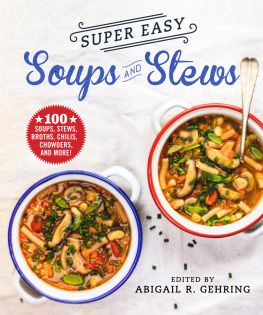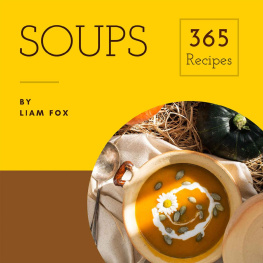
First Published in 2018 by Victory Belt Publishing Inc.
Copyright 2018 Carolyn Ketchum
All rights reserved
No part of this publication may be reproduced or distributed in any form or by any means, electronic or mechanical, or stored in a database or retrieval system, without prior written permission from the publisher.
ISBN-13: 978-1628603-15-6
The author is not a licensed practitioner, physician, or medical professional and offers no medical diagnoses, treatments, suggestions, or counseling. The information presented herein has not been evaluated by the U.S. Food and Drug Administration, and it is not intended to diagnose, treat, cure, or prevent any disease. Full medical clearance from a licensed physician should be obtained before beginning or modifying any diet, exercise, or lifestyle program, and physicians should be informed of all nutritional changes.
The author/owner claims no responsibility to any person or entity for any liability, loss, or damage caused or alleged to be caused directly or indirectly as a result of the use, application, or interpretation of the information presented herein.
Front and back cover photos by Hayley Mason and Bill Staley
Author photos by Michael Schmitt
Cover design by Justin-Aaron Velasco
Interior design by Charisse Reyes
Printed in Canada
TC 0118
CONTENTS


PREFACE
What is it about soup that we all love so much? Really, think about it. Have you ever met anyone who said they dont like soup? We may not all like exactly the same soups, and we may have our preferences for certain flavors and ingredients, but taken as a whole, soup is universally adored. Soups and stews in various forms can be found across all cultures, in every corner of the world. And soup has been a part of human culture for tens of thousands of years, according to archaeological evidence. Chances are that as soon as humans found ways to boil water, they were making soup.
Its almost a primal human instinct to crave a steaming liquid full of bite-sized nutrients. And it really doesnt take much to see why. Soup is perhaps the perfect food: easy to make, nourishing, economical, and infinitely variable. It can be made with just about anything you have on hand and adjusted to suit your tastes. Its also a great way to use up leftovers, and it can help stretch that grocery budget just a little further each month. And in a well-made soup, there are a number of different nutrients in every bite.
But what truly drives our love of soupthat primal cravingis the comfort factor. That, my friend, is quite a bit harder to quantify, but its very, very real. From that first sip of a good soup, we all feel it. Warm and flavorful, soup can reach beyond mere sustenance and actually touch our hearts and minds. It relaxes us, puts us at ease, and brings us a sense of well-being. It brings us physical warmth, too, of course, but its so much more than that. Its nostalgia for childhood, memories of cozy kitchens, of parents and grandparents, of being loved and cared for. And it really can help soothe and strengthen us when we are sick.
Yes, soup really is that powerful. Soup is the ultimate comfort food. Do you think a book called Grilled Chicken for the Soul would have sold hundreds of millions of copies?
I put this question to my readers recently: What do you love most about soup? The same themes came up again and again: comfort, warmth, ease. One of them simply said, Soup is like a big warm hug in a bowl. How can you argue with that?
"Soup is the song of the hearth... and the home."
Louis Pullig De Gouy
INTRODUCTION
Soup: The Perfect Keto Food
Soups and stews are extremely popular in ketogenic cooking, and not just for the comfort factor. Keto soups appeal to new and experienced keto dieters alike for a number of reasons:
Theyre uncomplicated and easy to make. Most soup and stew recipes are straightforward, easy to follow, and very forgiving. It doesnt matter much if you add a little more of this or a little less of that. If youre new to cooking, soup is the perfect way to get your feet wet.
Theyre relatively inexpensive. The keto diet can seem somewhat costly at times, with the emphasis on fresh foods and the lack of preservatives and fillers. Popping meat and vegetables into a pot of broth and simmering them allows you to stretch those fresh ingredients a little further.
They fit in well with a busy lifestyle. When going keto, you dont have many premade convenience options. Many soups and stews practically cook themselves, so you dont have to stress too much about weeknight cooking.
Theyre great for make-ahead and meal prep. A great many soup and stew recipes can be made ahead and refrigerated or frozen, so they work very well for people who like to plan ahead.
They can easily be scaled up or down. Have a large family to feed? Double the recipe. Is it just you and your significant other? Make only half.
Theyre familiar. Even if the ingredients arent exactly the same, keto soups and stews closely resemble their non-keto counterparts. For many new keto dieters, having familiar comfort food options makes the diet seem much more doable.
But perhaps the most significant reason that soup is so perfect on a keto diet? Its incredibly healthy. And isnt that the ultimate goal here?
Soup has long been revered around the globe for its healing properties. And it turns out that this is more than an old wives tale. Even the simplest of homemade soups are rich in nutrients and minerals from all the components. Even various spices and herbs can contribute significantly to the healthfulness of that bowl in front of you.
Soups and stews are often packed with vegetables and protein, and keto soups are also heavy on good, satiating fats. But one of the most valuable sources of nourishment is the part that is most frequently overlooked: the broth. A good broth or stock is foundational to the flavor of a soup, but it plays a much larger role.
When you first start a keto diet, you will almost certainly hear a lot about bone broth. Indeed, bone broth is the current darling of the healthy-eating world and is credited with many healing properties. While true clinical studies are lacking on broths ability to cure a cold or heal the gut, theres no question that it contains a great many vital nutrients that can help us feel better.

A long-simmered bone broth or stock contains plenty of gelatin and glucosamine from the animal bones, which may aid in digestion and possibly benefit those with joint issues such as arthritis. And there is quite a bit of evidence to suggest that a good broth has anti-inflammatory properties. Beyond that, sipping hot chicken soup has been shown to clear up nasal congestion better than other natural remedies.
Another reason that soup is ideal for the keto diet? Electrolytes, those vital salts that our bodies rely on to function properly. Going keto means cutting out many higher-carb fruits and vegetables, which are good sources of these nutrients. It turns out that bone broth is also a great source of potassium, magnesium, sodium, and calcium, so eating soup regularly helps balance your electrolytes. And it can help ward off the effects of the dreaded keto flu!
Next page
